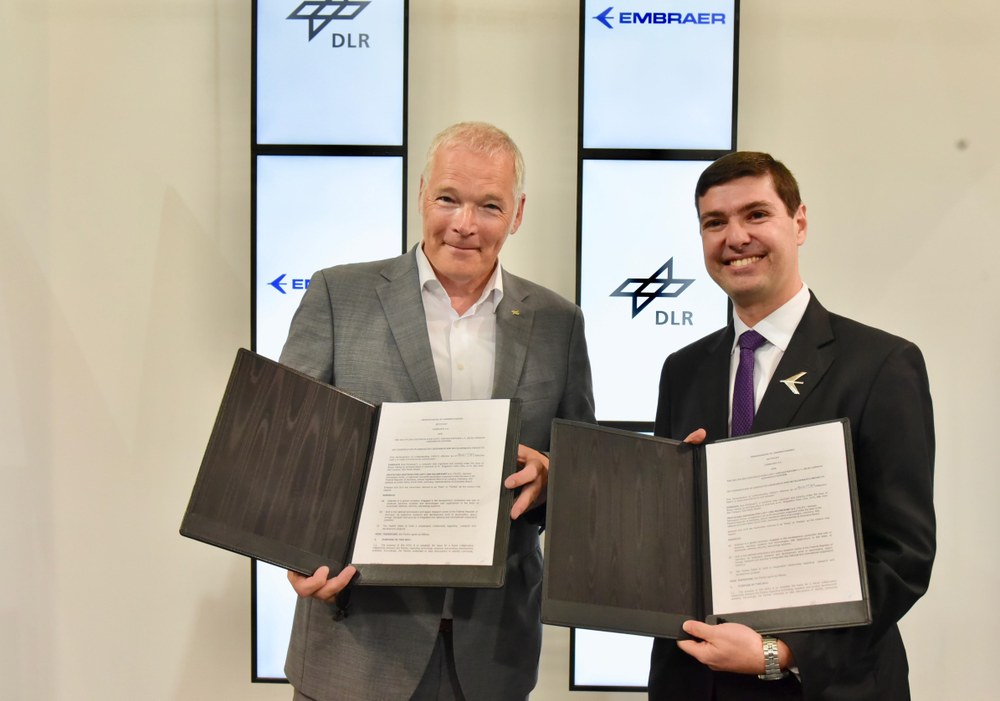DLR and Embraer agree on cooperation in aviation research
- Joint research efforts are being intensified
- Working on more efficient aircraft and reducing noise and emissions
- Focus: aviation, emissions
The Brazilian aircraft manufacturer Embraer and the German Aerospace Center (Deutsches Zentrum für Luft-und Raumfahrt; DLR) have signed an agreement to expand their research collaboration in the aeronautics sector. The partners will work together on a wide range of topics, including reducing noise and emissions, improving the aerodynamic and aeroelastic performance of aircraft, and many aspects of lightweight aircraft construction using fibre-reinforced polymers and integrated adaptronic systems.
The agreement was announced during the Paris Air Show at Le Bourget during a meeting between Rolf Henke, DLR Executive Board Member responsible for aeronautics research, and Daniel Moczydlower, Vice-president for Technology Development at Embraer.
"We are increasingly seeking to combine DLR's research expertise with strong partners from science and industry in international cooperation," says Henke. "We are therefore very pleased to embark on this joint path in aeronautics research with aircraft manufacturer Embraer."
"Embraer fosters innovation through the collaboration with several research initiatives around the globe, including dozens of universities, research centres and industry partners," says Moczydlower. "In order to make more progress, we are extending our partnership with DLR in an unprecedented way, due to its recognised excellence on aeronautics research."
DLR and Embraer have already been cooperating on individual projects since 2001. For example, there are joint research activities addressing ice formation on aircraft (Aircraft Dynamic Modelling with Accreted Ice), aerodynamics modelling (Online Parameter Identification for Integrated Aerodynamic Modelling) and aeroelasticity.
As the first concrete step of the intensified collaboration, both partners are planning to start a research project in flight dynamics in the second half of 2017.



